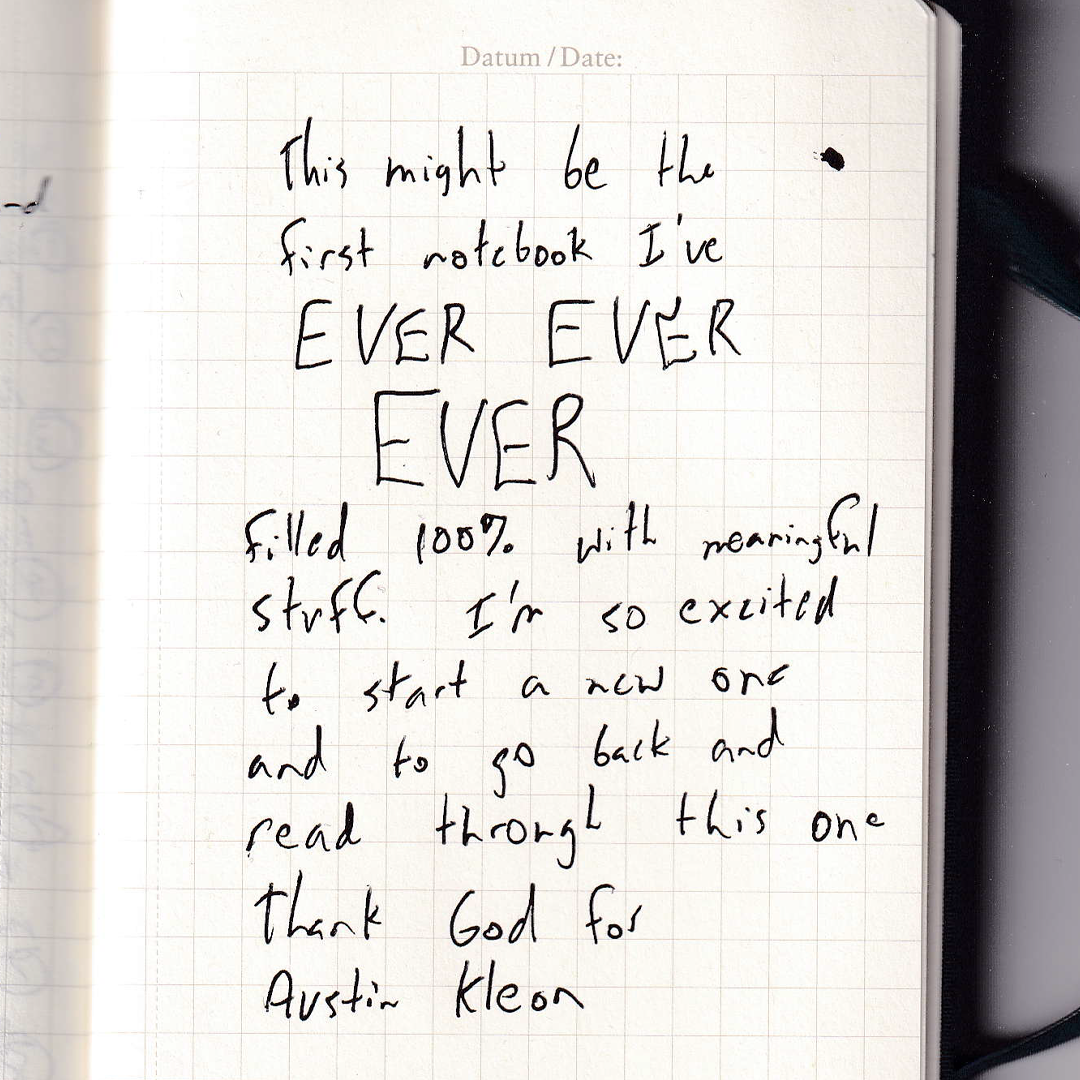I have so many half filled spiral ring notebooks from high school and college. Buying a new one was always more exciting than finishing the one I had. Moleskins made the joy of buying and the shame of abandoning even stronger (they’re so expensive!). I couldn’t do it.
But then I started reading Austin Kleon’s blog. And then Kleon pointed to Lynda Barry. Both wrote about journaling and keeping notebooks in a way that made it less intimidating. I was jealous of their attitude.
Here’s what I try to do now because of them…
Use one notebook to catch EVERYTHING. Let it all commingle. A to do list next to a prayer next to doodles next to a “I’m depressed enough to try writing a poem” poem (an example of which will NOT be included in the post). Cast a wide net and add something every day. But most of all, have fun. Play around. Let loose. Who cares.
And make sure you go back and revisit old journals later. You’ll be surprised at all you caught. Stand back and see the big picture. Connect the dots. Check for themes. Let that inspire what comes next in your current notebook.
Read again all the words you once thought important enough to write down. They might still mean something.
It’s a lot easier for me to get stressed and frustrated when I don’t start the morning journaling. I’ve also had to start journaling with my phone on the other side of the room. I kept catching myself picking it up whenever I started writing about something that made me uncomfortable.
I need to take away that distraction. If what I’m journaling about is making me uncomfortable, it’s probably a sign I’m heading in the right direction. That’s the exact thing I should be working out in writing.
Another book that’s really helped me with this is Opening Up by Writing It Down: How Expressive Writing Improves Health and Eases Emotional Pain.
My main takeaway: Have a difficult memory or situation you’re struggling with? Set a timer for 20 minutes and write nonstop the whole time. Just get in the zone and get it out. When the timer is up, close the journal. Give yourself a moment to breathe. Do it again tomorrow. See how you feel after 3 or 4 days of this.
Everything I put in my notebooks: journaling, prayers, plans, rants, stories, jokes, lists, quotes, questions, sermons, memories, and a drawing of Homer Simpson from memory.
Austin Kleon on keeping a notebook
A journal is a magic space to hang out
The page is a place (based on Lynda Barry quotes!)
Journaling exercise from Lynda Barry
Sometimes when I’m having trouble writing a story, I’ll play this video. Lynda Barry recorded this memory writing exercise for her college class (which you can read all about in the awesome book Syllabus).








